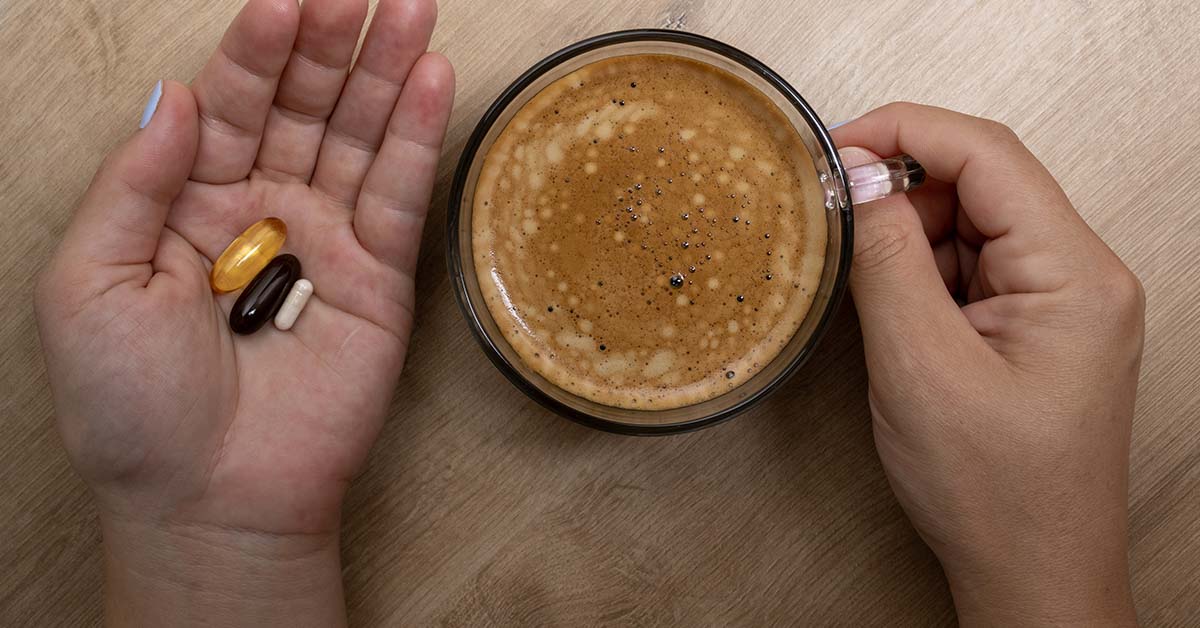For many of us, the day doesn’t really start until we’ve had our first cup of coffee. It perks us up, helps to get our digestive system going, and is part of our morning routine that makes us feel ready for the day. But did you know that your morning joe could potentially interact with the medications you’re currently taking? It turns out that coffee can affect the absorption of certain medications in our bodies. That’s why it’s important to be aware of which medications might be impacted by coffee. This is how coffee works and ten medications that can be negatively impacted by drinking coffee at the same time. As always, we advise that you consult with your doctor before making any changes to your medication routine.
How coffee works in the stomach

First, let’s talk about how coffee works in our stomachs and how it can affect absorption. When we drink coffee, the caffeine in it can stimulate our stomachs and change how quickly food moves through our digestive systems. This is the reason why a few minutes after drinking coffee, you often need to take a trip to the bathroom. The thing is, this stimulation also affects how our bodies digest and absorb medications. Coffee can influence the effectiveness of certain medications by either decreasing or increasing their absorption or metabolism in the body.
Read More: Kids are Getting Drunk by Adding Vanilla Extract to their Coffee
10 Medications that are affected by coffee
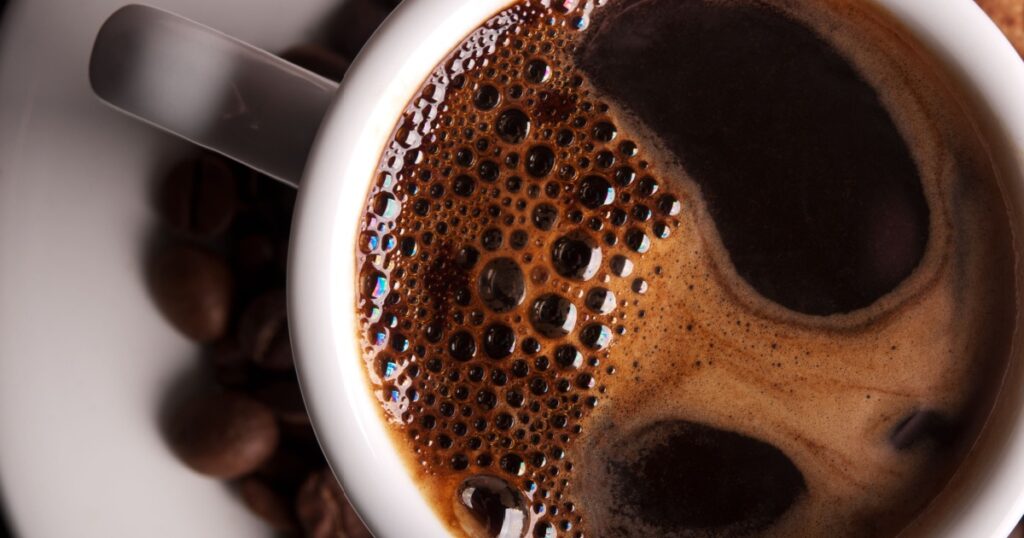
Coffee (and truthfully, anything caffeinated) can have a big impact on how well we absorb many things, including medications, supplements, and other nutrients. It can amplify the effects and drastically decrease them. This is crucial to understand, as many of us take our medications in the morning, when we are most likely to drink coffee. As always, when you are prescribed medication, make sure to talk to your doctor about the ideal time to take it and what you should avoid consuming within a certain amount of time around it. This will allow you to optimize the medication and also avoid any dangerous consequences of unwanted interactions.
1. Thyroid Medicine
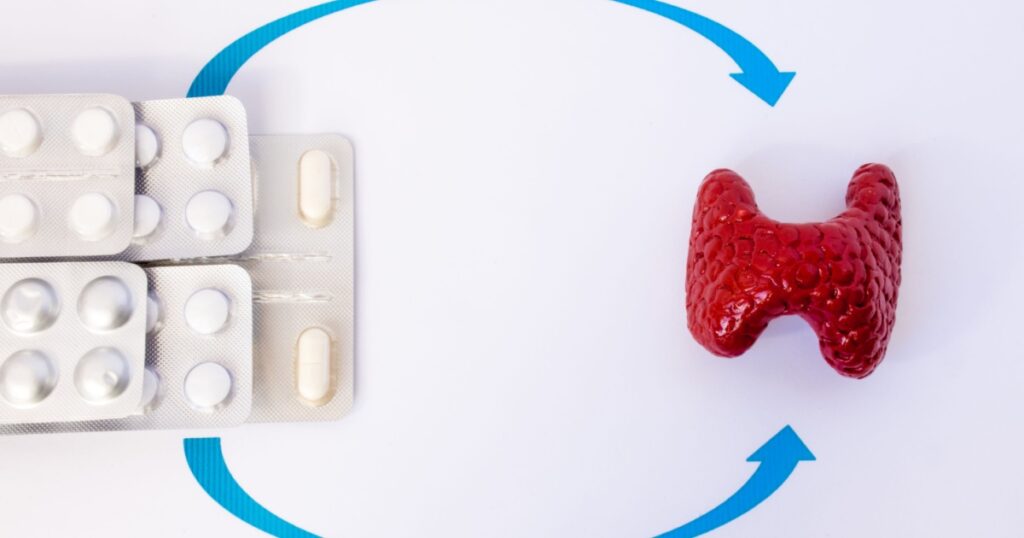
If you have hypothyroidism and take medications to balance out your hormones, drinking coffee at the same time could reduce the amount of medication that is absorbed by your body. This could make the medication less effective. The effect is not a small one, either. Studies show that coffee can reduce the absorption of these medications by more than half. (1)
2. Cold or Allergy Medication

Some allergy medications, such as fexofenadine, should not be taken with coffee, as these medications often contain stimulants. Coffee is also a stimulant, so taking them together can quickly overstimulate your central nervous system. This will increase the symptoms of restlessness and likely affect your ability to sleep. It’s always best to ask your healthcare provider for advice regarding combining coffee and cold or allergy medicine. (2)
3. Diabetes Medication
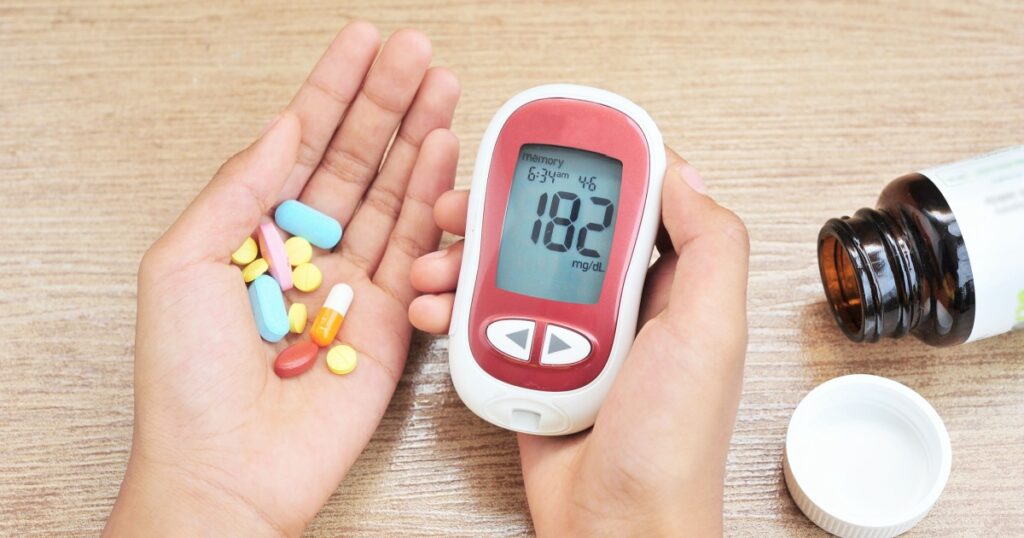
Drinking coffee with sugar or milk can lead to a spike in blood sugar that can impact how well your diabetes medication works. Caffeine may also worsen symptoms for people with diabetes by raising insulin and blood sugar levels. More studies are needed to understand better how coffee and caffeine affect diabetes management. (3)
Read More: What Happened to the Biodegradable Coffee Cups That Grow Into Trees When Thrown Away?
4. Alzheimer’s Medicine
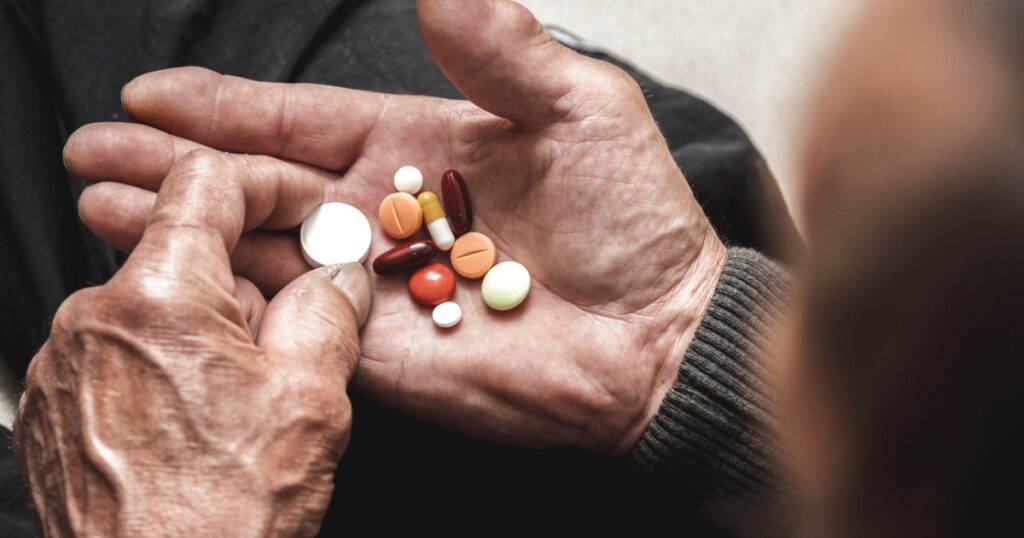
Alzheimer’s medications like donepezil, rivastigmine, and galantamine are affected by caffeine. Coffee tightens up the blood-brain barrier, decreasing how much of the drug actually makes it to the brain. Drinking high amounts of coffee has shown to impair the protective effects of Alzheimer’s medications by reducing the effectiveness of acetylcholine. (4)
5. Asthma Medication

Drinking coffee or other drinks high in caffeine can increase the risk of side effects associated with bronchodilators, like headache, restlessness, stomach pain, and irritability. Coffee can also reduce how much of the medication is absorbed and useful to the body. (5)
6. Osteoporosis Medication
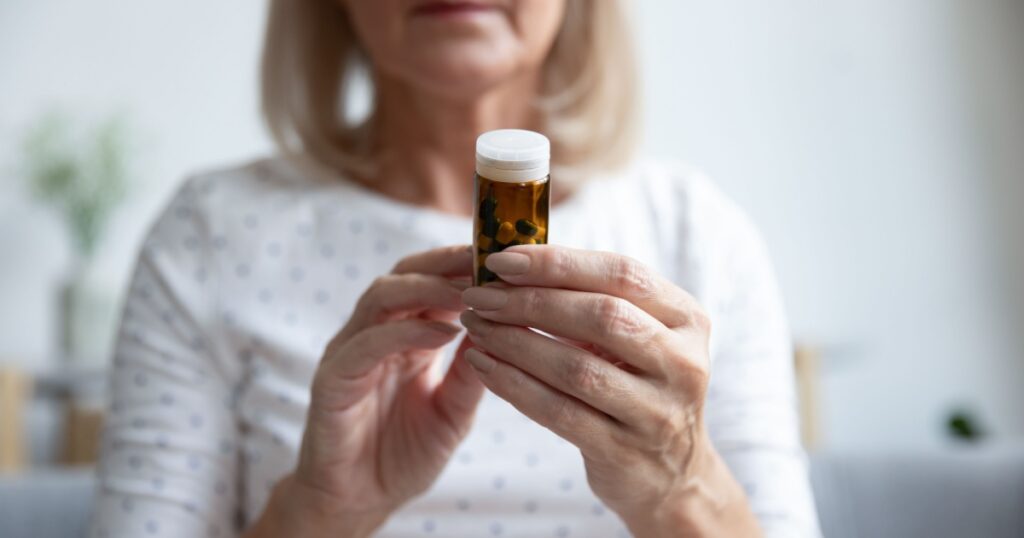
Drugs used to prevent and treat osteoporosis, like risedronate or ibandronate, should not be taken at the same time as coffee because it can reduce the effectiveness of the medication by more than half. It is best to take these medications before eating or drinking anything and only wash the pill down with plain water. Speak with your doctor as to when is the best time for you to take this medication and when and what you can eat and drink before and after. (6)
7. Antidepressants
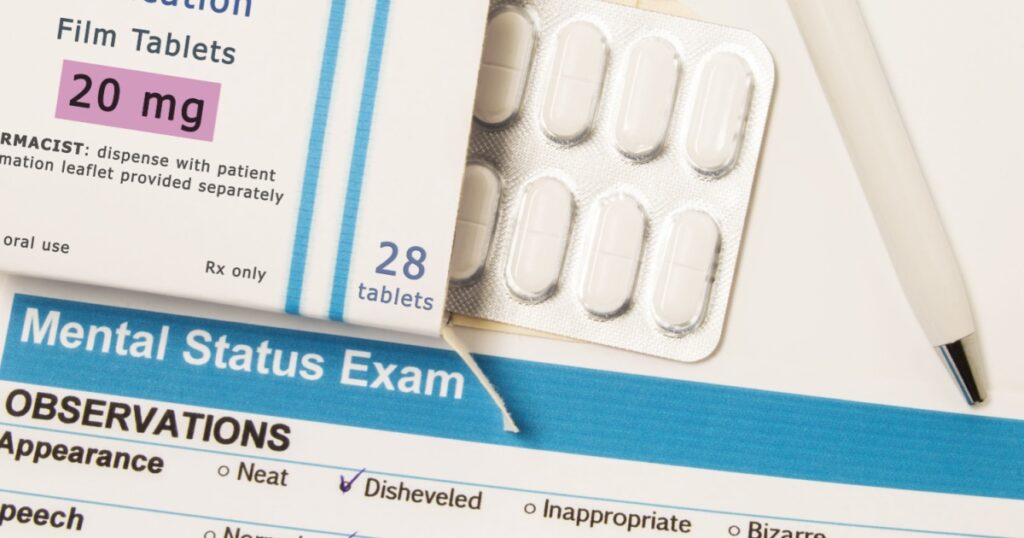
Coffee can reduce the absorption of certain antidepressant medications like fluvoxamine, amitriptyline, escitalopram, and imipramine. Coffee can also enhance the usual side effects of caffeine, leading to insomnia and heart palpitations. It is recommended to avoid caffeine while taking this medication – perhaps talk to your doctor about coffee drinking, including the possibility of including decaf. (7)
Read More: Research Shows that Psychopaths Might Prefer To Drink Their Coffee Black
8. Antipsychotic Medicine
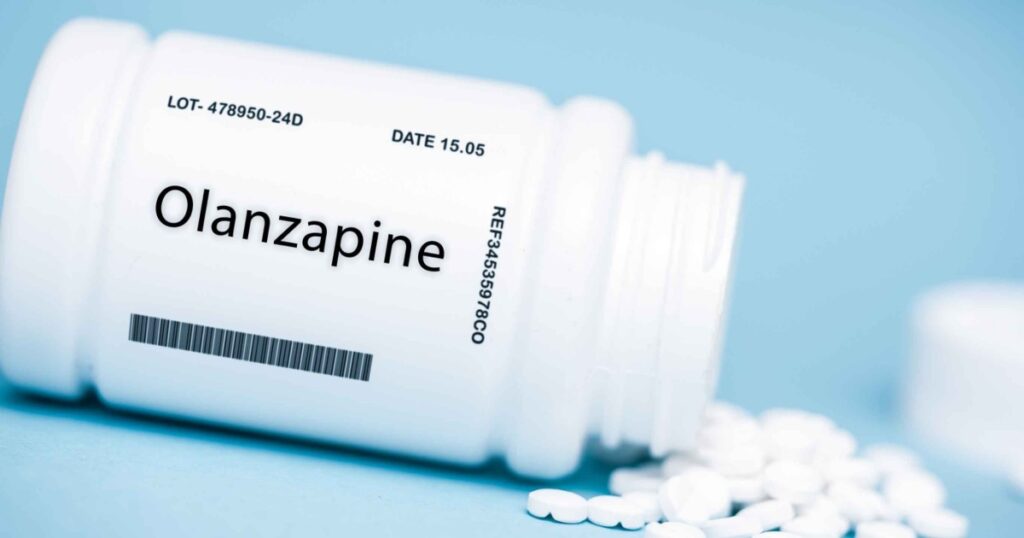
Antipsychotics are used for people who suffer from certain mental health problems, including schizophrenia and major depressive disorder. They function by either inhibiting certain neurotransmitters in the brain or blocking their receptors. Coffee can make the body absorb less of antipsychotic medications like phenothiazine, clozapine, haloperidol, and olanzapine than it usually would. Many of these medications are metabolized or broken down by the body differently in the presence of coffee. It is important that these medications are taken only with water. (8)
9. Blood Pressure Medicine
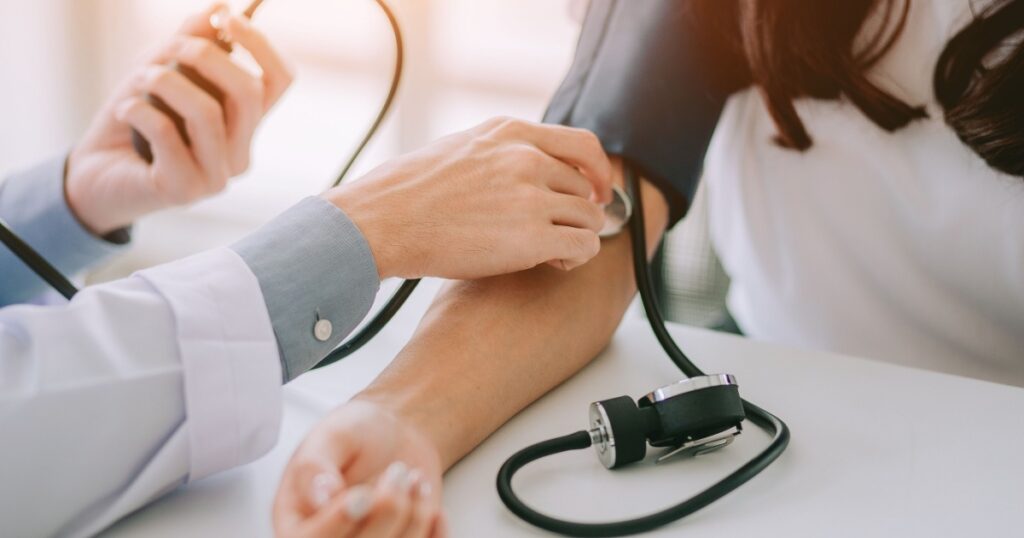
Blood pressure medications typically work by slightly slowing down your heart rate. This is so that your heart doesn’t have to work so hard to pump blood around your body. Coffee, as we know, can cause an increase in heart rate. It can also block the absorption of your medication. Drinking coffee at the same time as taking blood pressure medications like felodipine can cause less of the medication to be absorbed by your body, making it less effective.
10. Melatonin
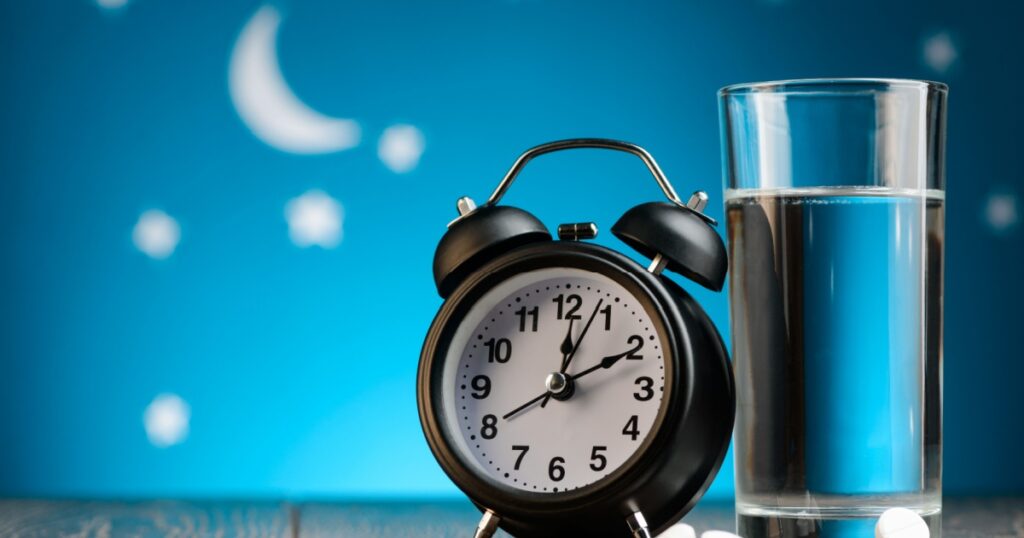
Melatonin is a natural hormone that helps signal to the brain that it’s time to rest. Coffee is a stimulant that can inhibit melatonin production in the body and make it less effective. Essentially, if you take melatonin at the same time as drinking a coffee (or any other caffeinated beverage), you are just canceling each other out. This means avoiding not only coffee when taking melatonin but also energy drinks, caffeinated teas, and sodas such as Coca-Cola.
Talk to your doctor

If you’re taking any of these medications, it’s always best to talk to your doctor before making any changes. They may advise that you delay your first cup of coffee or adjust the timing of your medication to avoid any potential interactions.
The Bottom Line

Coffee is an essential part of many of our daily routines, but it’s important to be aware of its potential interactions with certain medications. In this article, we’ve covered ten medications that can be negatively impacted by coffee. As always, it’s important to consult with your doctor before making any changes to your medication regimen, including when and how you consume coffee. By staying informed and taking the proper precautions, you can enjoy your daily cup of coffee without any unwanted side effects.
There are a multitude of drugs that interact with caffeine. You can use this Caffeine Interaction Checker from Drugs.com to see if a medication has a potential interaction with coffee and caffeine.
Sources
- “The Effect of Coffee on Pharmacokinetic Properties of Drugs : A Review.” NCBI
- “Fexofenadine and Pseudoephedrine.” Medline Plus
- “Caffeine Impairs Glucose Metabolism in Type 2 Diabetes.” Diabetes Journals. James D. Lane, PHD, Christina E. Barkauskas, AB, Richard S. Surwit, PHD and Mark N. Feinglos, MD. August 1, 2004.
- “Does caffeine influence the anticholinesterase and antioxidant properties of donepezil? Evidence from in vitro and in vivo studies.” Pubmed. Ganiyu Oboh, Opeyemi Babatunde Ogunsuyi and Oluwaseyi Emmanuel Olonisola. April 2017.
- “Aminophylline.” Medline Plus
- “Risedronate.” Medline Plus
- “Fluvoxamine impairs single-dose caffeine clearance without altering caffeine pharmacodynamics.” NCBI. Kerry E Culm-Merdek, Lisa L von Moltke, Jerold S Harmatz, and David J Greenblatt. November 2005.
- “The Effect of Coffee on Pharmacokinetic Properties of Drugs : A Review.” NCBI
Disclaimer: This information is not intended to be a substitute for professional medical advice, diagnosis or treatment and is for information only. Always seek the advice of your physician or another qualified health provider with any questions about your medical condition and/or current medication. Do not disregard professional medical advice or delay seeking advice or treatment because of something you have read here.
